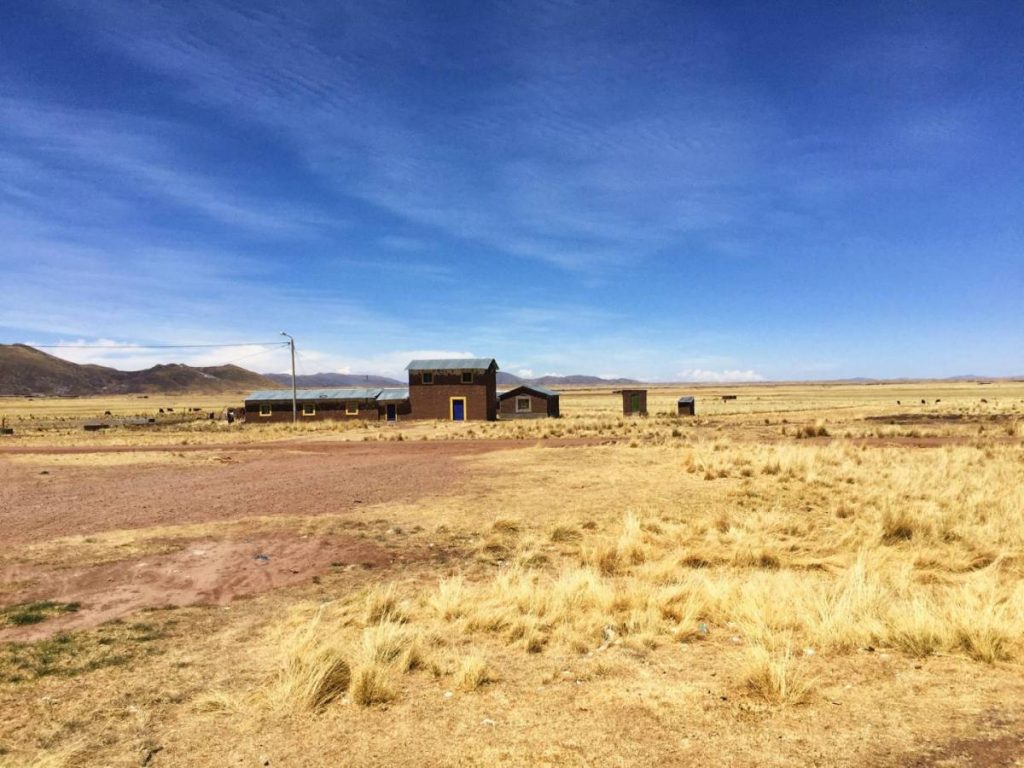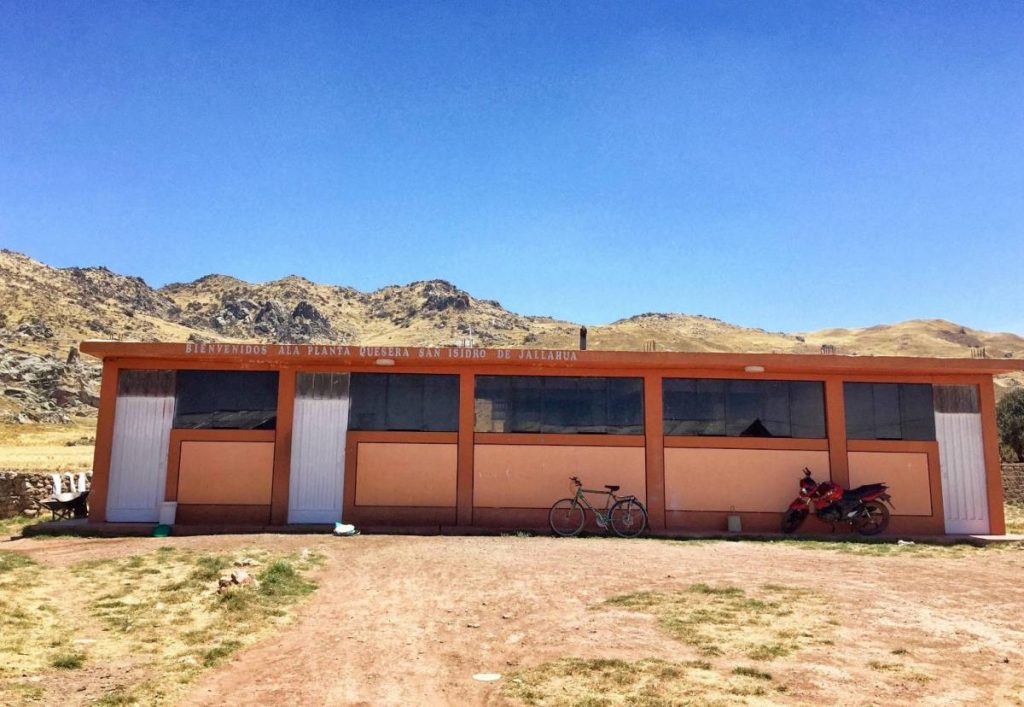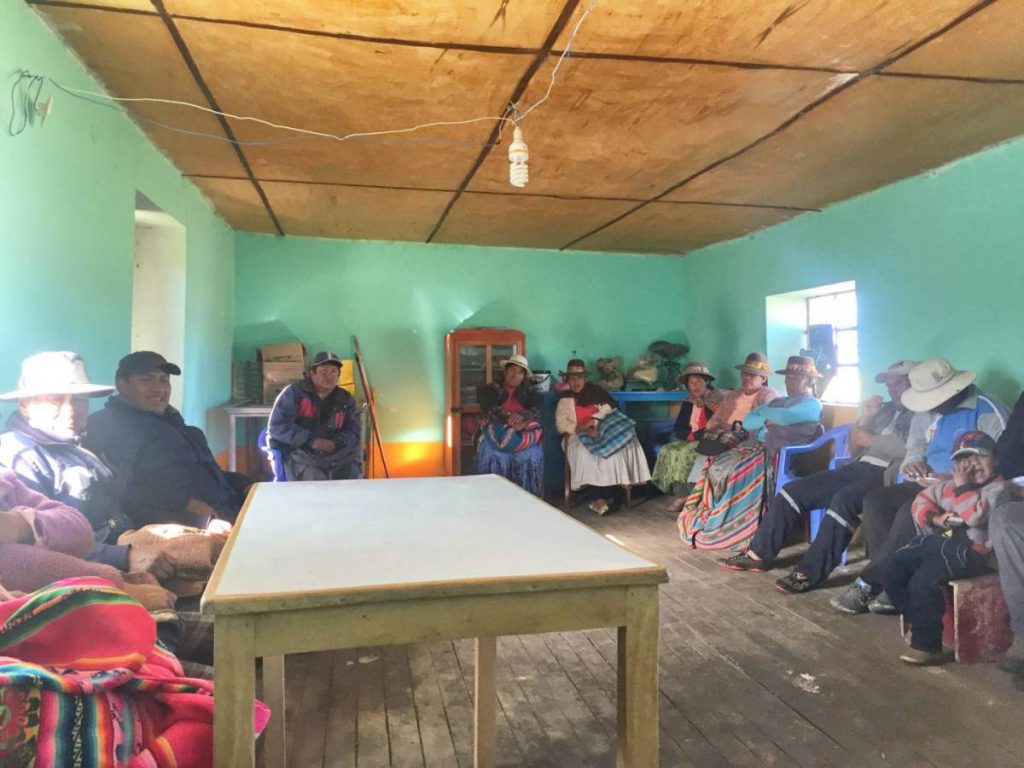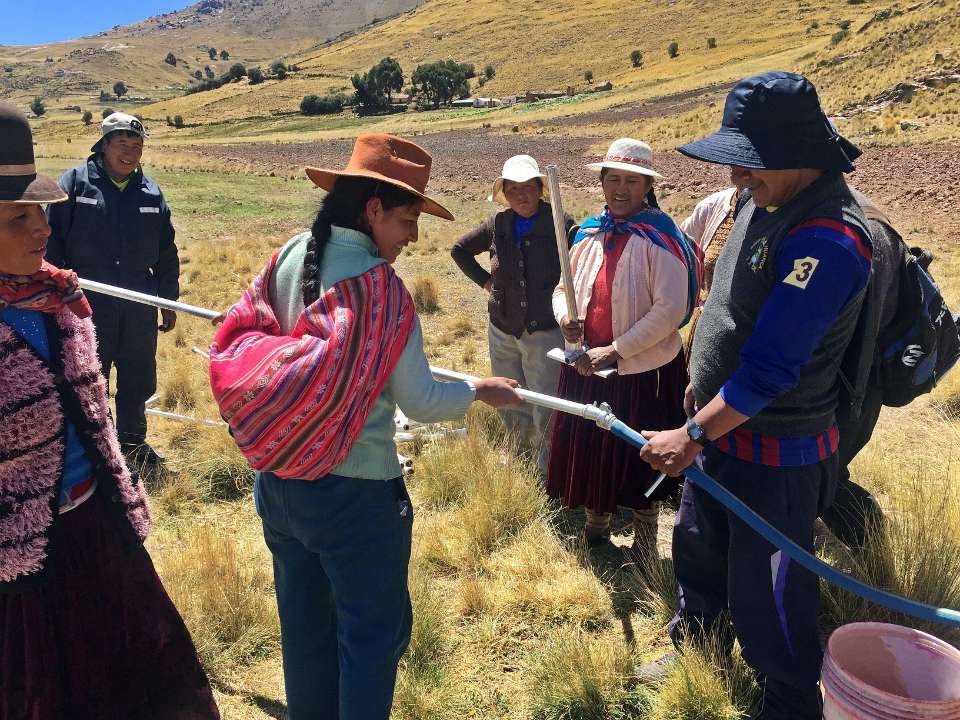This project is made possible through the partnership of WATER CHARITY and the NATIONAL PEACE CORPS ASSOCIATION. ![]()
This project has been completed. To read about the conclusion, scroll down the page.
Location
Jallahua, Puno Region, Peru
Community Description
Jallahua is a semi-disperse community lying at the base of surrounding hills at an elevation of 3,910 m (12,828 ft) above sea level. This community of 18 families (110 people) relies almost entirely on cattle husbandry and milk and cheese production as their source of income. They have been working together to find ways to increase milk production in their cattle in order to improve the economy of the community.
Problem Addressed
Alfalfa is an important crop for communities that rely on cattle husbandry because it is a nutritious food source that helps increase milk production. During the long dry season months, it is almost impossible to grow anything without using an irrigation system. The community members of Jallahua have water wells they could use as a water source for irrigation, but they lack the necessary equipment to be able to irrigate large fields. Without this equipment they are unable to grow alfalfa for their cattle during the dry season, causing a decrease in milk production and, in turn, income.
Project Description
This project is to provide sprinkler irrigation systems to 12 interested families in the community so that they will be able to irrigate their fields and grow alfalfa for their cattle year-round.
The sprinkler system was chosen by the community members and will be made of light-weight aluminum tubes. The system consists of 48 meters of aluminum piping with 6 sprinkler heads. The sprinklers are spaced 9 meters apart and are at a height of 0.7 meters. The sprinkler heads are made of plastic, are ¾ inch in diameter and spray in a circular motion. Each sprinkler covers a maximum area of 180 square meters. The system will be connected to the existing water wells using a hose and an electric pump. The length of the hose will depend on the distance from the well to the field. The system can be moved as
desired as long as it has a connection to the water source.
Water Charity funds will be used to buy the necessary materials for the new sprinkler irrigation systems. However, half of the funds will be used to contribute to the community’s rotating loan fund. An important value of the Chijnaya Foundation, the NGO administering this project, is that community development should come from the community and simply giving money can be unsustainable in the long run, so the Chijnaya Foundation implements rotating loan funds in the community to fund projects. Rotating loan funds are similar to a regular loan in that the community has to pay back the money. However, the funds they pay back will remain in the community as a source of funding for future community projects. Any time funds are used they must be paid back and interest rates are applied. These funds provide communities with a way to self-sustainable implement projects.
Because this project involves providing materials to individuals and not building a system to benefit the entire community, rotating loan funds will be applied, meaning that each family receiving an irrigation system will have to pay back half of the cost of the system and this money will be put into the rotating loan fund of the community to be used for future projects. Community members will also provide a hose and an electric pump to connect the irrigation system to their well.
 Project Impact
Project Impact
73 people in 12 households will benefit from this project.
Project Administration
The project will be administered by Ralph Bolton, Returned Peace Corps Volunteer (Peru,’62-’65), and founder and director of The Chijnaya Foundation. Work will be done under the direction of Chijnaya’s operational arm, Association Pro-DIA, a legally-constituted Peruvian counterpart.
On-the-ground work is being managed by Kimmy Mazza, Returned Peace Corps Volunteer (Peru,’16-’18).
This project is a part of the Altiplano Water Program – Peru.
Monitoring and Maintenance
The company that sells the irrigation system will provide training on the proper operation and maintenance of the system. Community members will provide funds sufficient to maintain their irrigation systems, conduct repairs, and perform replacements when necessary.
Project Funding
This project was paid for through the generosity of the Paul Bechtner Foundation. Funds raised in excess of the project amount will be allocated to other projects in the country.


Final Report Jallahua Irrigation System Project
 Thanks to the Jallahua Irrigation System Project, 12 households now have sprinkler irrigation systems that they can connect to existing water wells. This project began with community meetings to decide which project would be the most beneficial for the community. The community decided which type of irrigation system they would like to implement: They decided an aluminum piping sprinkler irrigation system instead of the more common polyethylene piping and a pedestal sprinkler system because of the aluminum tubing system is more durable and user-friendly.
Thanks to the Jallahua Irrigation System Project, 12 households now have sprinkler irrigation systems that they can connect to existing water wells. This project began with community meetings to decide which project would be the most beneficial for the community. The community decided which type of irrigation system they would like to implement: They decided an aluminum piping sprinkler irrigation system instead of the more common polyethylene piping and a pedestal sprinkler system because of the aluminum tubing system is more durable and user-friendly.
The business that sells the systems came to the community to train the community members on the operation and maintenance of the irrigation system. The people of Jallahua use wells with an electric pump as their source of irrigation water, so the engineer explained how to connect the system to a pump. By the end of the training, they had assembled a fully functioning system and learned all the steps for proper operation and maintenance.
The community is very happy to finally have reliable irrigation systems, especially for the upcoming dry season. They have a communal cheese plant that has vastly improved their economy, but there are still many improvements that can be made to increase milk production and improve the cheese-making process. These irrigation systems will help them move towards their goals by improving food sources for their cattle.